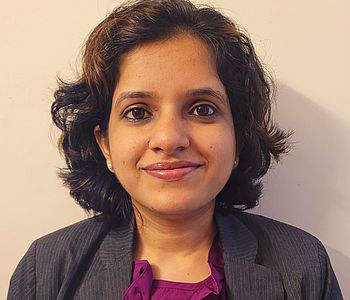Dhanasree Jayaram | Forscherin Fellow
Former Member
Biography
Dr. Dhanasree Jayaram is a Research Fellow at Centre Marc Bloch (CMB) and Guest Researcher at Freie Universität Berlin – under the Alexander von Humboldt Foundation’s International Climate Protection Fellowship (for postdocs) 2022-23. She is an Assistant Professor, Department of Geopolitics and International Relations, and Co-coordinator, Centre for Climate Studies, Manipal Academy of Higher Education (MAHE), Karnataka, India. She is also a Research Fellow, Earth System Governance; Member, Climate Security Expert Network; and Member, Planet Politics Institute. She holds a PhD in Geopolitics and International Relations from MAHE. She pursued a visiting fellowship (Erasmus Mundus – short-term PhD) at Leiden University, the Netherlands during 2014-15; and a postdoctoral fellowship at the University of Lausanne, Switzerland, under the Swiss Government Excellence Scholarship during 2018-19. She managed a project of adelphi (Berlin) on “Climate Diplomacy”, sponsored by the German Federal Foreign Office during 2015-20. Her primary fields of interest include climate politics and diplomacy, environmental security and military, regional environmental policy in Asia, and environmental peacebuilding.